Rubens Dias de Melo Junior, Universidade Federal de Goiás, Brazil
This study reports assessment of the sensitivity of diagnostic techniques to detect Trypanosoma vivax in experimentally infected cattle. Additionally, it describes T. vivax extravascular parasitism during the acute and chronic phases of trypanosomosis and congenital transmission. [....] » Read More














Title : Analyzing veterinary medicine residues in food: A comprehensive guide
Andreia Freitas, INIAV/REQUIMTE, Portugal
The use of pharmacological active compounds (antimicrobials, hormones, NSAIDs, tranquilizers) in food producing animals can pose significant health risks to humans. In a One Health perspective, the negative effects are also felt by animals and the complete ecosystem. Residues fro [....] » Read More
Title : Quantifying changes in facial expression following hot-iron disbudding under procaine hydrochloride and meloxicam treatment in Holstein dairy calves
Nnenna Ugwu, Anglia Ruskin University, United Kingdom
The analysis of facial expression for cattle pain assessment has been under explored compared to other animal species, despite reports highlighting its usefulness. Therefore, this study aimed to assess changes in facial expression following hot-iron disbudding, a routine painful [....] » Read More
Title : Characterization of porcine rotaviruses in the Czech Republic
Romana Moutelikova, Veterinary Research Institute, Czech Republic
Porcine rotaviruses A (RVA) are known for their complex epidemiology, pathogenicity and great genetic diversity. From a veterinary point of view, RVA represents one of the most important causes of acute diarrhoea of young animals. Apart from the first days of life, piglets are at [....] » Read More
Title : Use of infrared thermography as a tool to monitor skin temperature in equine veterinary medicine and physiography
Maria Sororok Dubrovina, Institute of Animal Breeding, Wroclaw University of Environmental and Life Sciences, Poland
Infrared thermography (IRT) is a non-invasive diagnostic technique that records and visualizes the infrared radiation emitted by the body surface, mapping temperature distribution patterns that can indicate physiological or pathological changes. Since its introduction to equine v [....] » Read More
Title : Sheet plastination method for preparation teaching models by using local polyester resin
Alaa, University of Basrah, Iraq
At the college of veterinary medicine, University of Basrah ,The Ambition to produced a low cost educational anatomical specimens using local polyester resin materials that are easy to use and inexpensive that useful for dissection, and reduced the formalin exposure hazard. [....] » Read More
Title : Prevalence and microscopic studies of mixed sarcocystis infection in naturally infected sheep and goats transmitted to the human in Soran City, Erbil- Iraq
Sara swar, Salahaddin University, Iraq
Sarcocystis species are cyst-forming intracellular zoonotic protozoan parasites of the phylum Apicomplexa, which infect several animals, including livestock species. In spite of the significance of sheep and goats as meat- producing animals in Kurdistan –Iraq, little it is [....] » Read More
Title : Evaluation of simple, effective and affordable processing methods to reduce phytates in the legume seeds used for feed formulations
Kedibone Gloria Kgosana, Sefako Makgatho Health Sciences University, South Africa
Legumes seeds are important in agriculture as they are used for feed formulations due to their nutrient-dense, low-cost and easy accessibility. Although they are important sources of energy, proteins, carbohydrates, vitamins, and minerals, they contain abundant quantities of anti [....] » Read More
Title : Genome-wide evaluation of population structure and genetic diversity of two Ethiopian native sheep populations
Belayneh Engidawork Demissie, Addis Ababa Science and Technology University, Ethiopia
Indigenous Ethiopian sheep inhabit diverse environmental conditions and hold opposing morphologies. Characterizing their genetic diversity is crucial for developing appropriate breeding and conservation schemes. The objective of the current study was to determine the genetic dive [....] » Read More
Title : Determination of Circulating Foot-and-Mouth Disease Virus Serotypes in Kenya (2023)
Hellen Mutua, Foot and Mouth Disease National Reference Laboratories, Kenya
(FMD) is an infectious virus of ungulate animals, affecting Many livestock and wildlife species. The causal agent is a single-strand non-enveloped RNA virus of the family Picornaviridae, genus Aphthovirus. This study intended to document foot-and-mouth disease virus serotypes res [....] » Read More